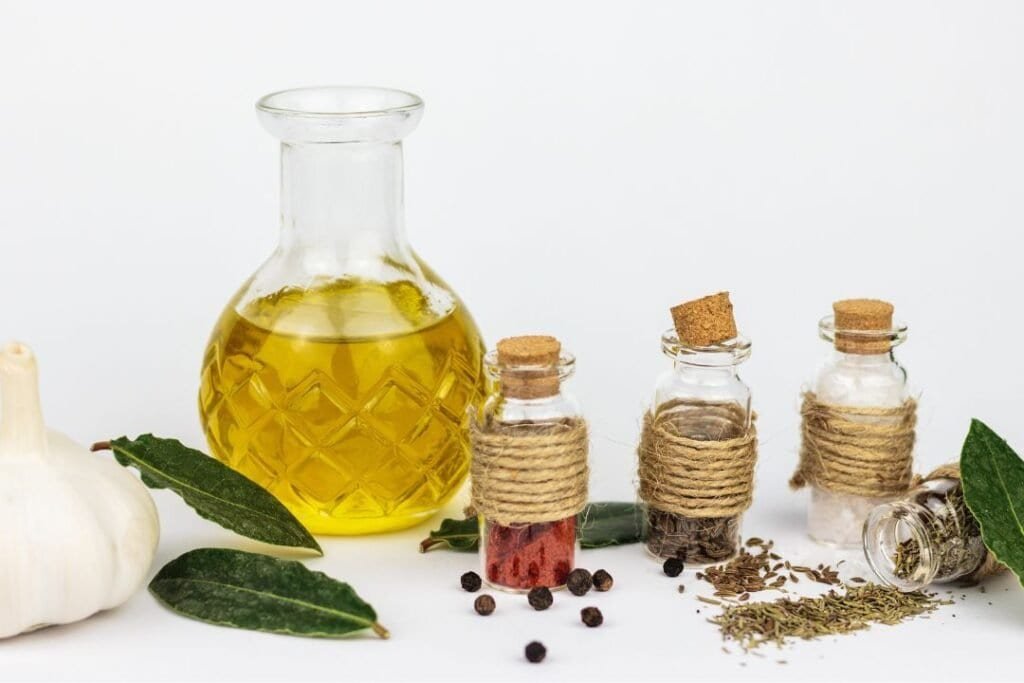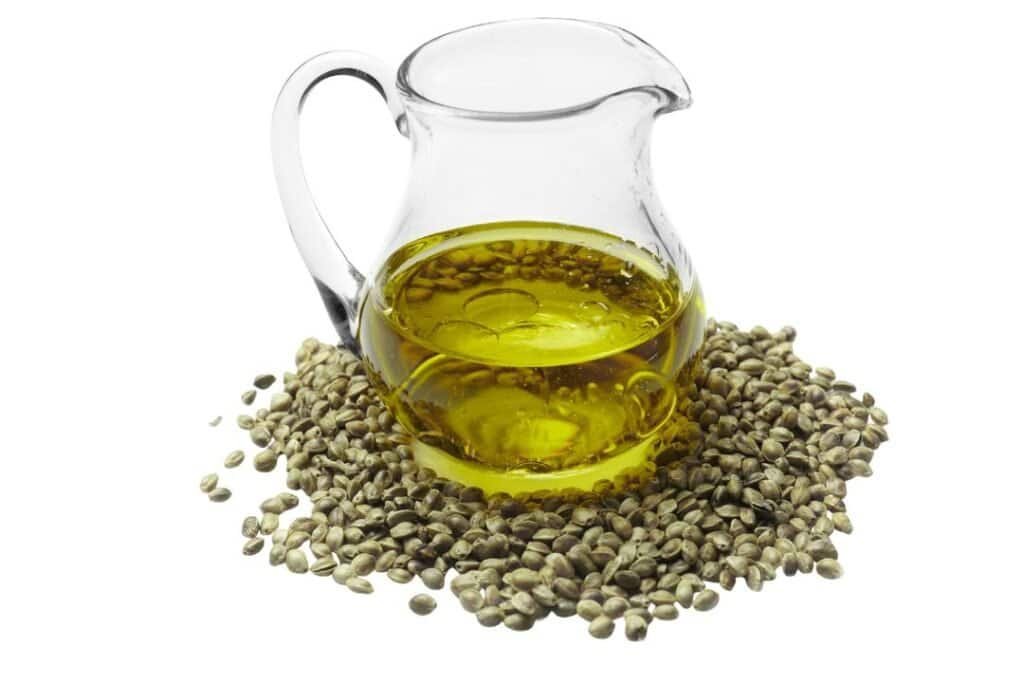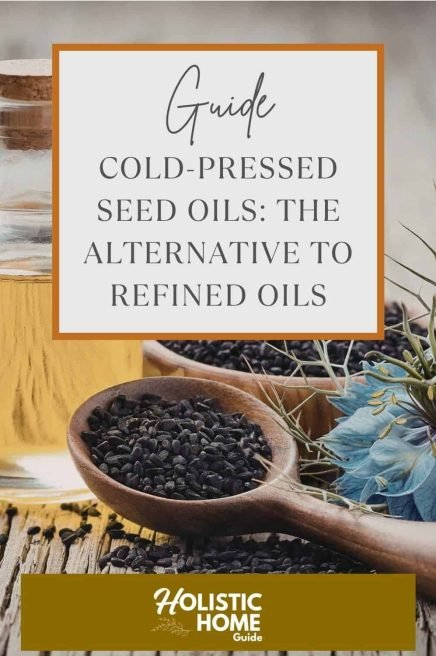There’s a lot of confusion about seed oils today. You may have heard warnings about canola, soybean, and sunflower oil—those highly refined oils that fill most grocery store shelves. They’re known to cause inflammation and oxidative stress when used regularly. But not all seed oils are created equal. In fact, some cold-pressed seed oils are deeply nourishing when they’re processed in their purest form.
Cold-pressed seed oils are the gentle, natural alternative to the industrial oils which are made by pressing seeds mechanically without heat or chemical solvents, preserving their nutrients, flavor, and life force. These oils can transform the way you cook, dress salads, and even care for your health.
This guide will help you rediscover cold-pressed seed oils—the wholesome, unrefined allies that deserve a place in every conscious kitchen.
This post may contain affiliate links which means we may receive a commission for purchases made through links. As an Amazon Associate we earn from qualifying purchases. Learn more on our Privacy Policy.

Understanding the Difference: Refined vs. Cold-Pressed Seed Oils
Refined seed oils are extracted with high heat and chemical solvents like hexane. These processes strip away vitamins, antioxidants, and natural flavor. What remains is an unstable fat that can promote inflammation in the body.
Cold pressing, on the other hand, uses slow mechanical pressure to extract oil from seeds without heat or chemicals. The result is a living oil that retains its original nutrients, aroma, and texture. It’s the closest you can get to the vitality of the seed itself.
Industrial seed oils, often called the “hateful eight.” —soybean, canola, corn, sunflower, safflower, grapeseed, rice bran, and cottonseed—are often used for frying and packaged foods. These are the ones to avoid. Cold-pressed oils such as flaxseed, hemp, black seed, and sesame oil are entirely different. They nourish rather than harm.
The Best Cold-Pressed Seed Oils for Everyday Use
There are a handful of cold-pressed seed oils that stand out for their flavor, nutritional value, and versatility in the kitchen. Each has its own unique character—some earthy and grounding, others light and aromatic.
Flaxseed Oil (Linum usitatissimum)
Flaxseed oil is one of the richest plant sources of omega-3 fatty acids, particularly alpha-linolenic acid (ALA). These essential fats support heart health, brain function, and reduce inflammation.
Cold-pressed flaxseed oil has a delicate, nutty flavor. It shines when drizzled over roasted vegetables, mixed into dressings, or added to a smoothie. Never heat it—it’s best used raw to preserve its nutrients.
Its natural properties also support healthy skin and hair, making it a kitchen and beauty staple.

Hemp Seed Oil (Cannabis sativa)
Hemp seed oil has a perfectly balanced ratio of omega-3 to omega-6 fatty acids. It’s a wonderful alternative to refined seed oils and offers a light, grassy flavor that pairs beautifully with greens, grains, and root vegetables.
Cold-pressed hemp oil is also rich in gamma-linolenic acid (GLA), a compound that supports hormonal balance and reduces inflammation. You can use it in salad dressings, drizzle it over soups, or stir a teaspoon into morning smoothies for a nutritional boost.

Black Seed Oil (Nigella sativa)
Black seed oil has been revered for thousands of years in Middle Eastern and Ayurvedic traditions. it’s packed with antioxidants and bioactive compounds like thymoquinone. It supports immune function, digestion, and overall vitality
While strong in flavor, cold-pressed black seed oil is deeply grounding and medicinal. Add a few drops to honey and lemon water, or blend it into dressings for an earthy depth.

Sesame Seed Oil (Sesamum indicum)
Cold-pressed sesame oil is one of the oldest oils used in cooking and traditional medicine. Its rich, nutty taste enhances sauces, dressings, and lightly warmed dishes.
It’s rich in antioxidants like sesamol and sesamin, which protect against oxidative stress and support healthy cholesterol levels. Sesame oil also has anti-inflammatory properties, making it a healthy seed oil substitute for refined vegetable oils.
How Cold-Pressed Seed Oils Support Health
One of the biggest misconceptions about seed oils is that they all cause inflammation. While ultra-refined oils do contribute to oxidative stress, cold-pressed seed oils can actually help reduce it.
They are naturally rich in antioxidants, vitamin E, and essential fatty acids that repair cell membranes and reduce inflammation. The difference lies entirely in processing.
Cold-pressed oils are whole foods, not industrial byproducts. They retain their enzymes and phytonutrients, supporting cardiovascular health, skin vitality, and hormone balance. When used mindfully, they nourish the body and calm the system rather than irritate it.
How to Use Cold-Pressed Seed Oils in Your Kitchen
Cold-pressed seed oils are not for frying or high-heat cooking. Their value lies in their purity and nutrient density, which shine in raw and low-heat dishes. Here are some easy, sensory ways to use them.
Salad Dressings and Finishing Oils
Whisk flax or hemp oil with lemon juice, apple cider vinegar, and herbs for a vibrant dressing. Their delicate flavor enhances fresh vegetables without overpowering them.
Dips, Sauces, and Marinades
Add a teaspoon of sesame or black seed oil to tahini, yogurt dips, or miso marinades for depth and richness. A little goes a long way.
Smoothies and Tonics
Blend a teaspoon of flax or hemp oil into morning smoothies or green juices. The natural fats support nutrient absorption and create a smooth, creamy texture.
Storage and Shelf Life
Keep cold-pressed seed oils in dark glass bottles, away from heat and sunlight. Most should be refrigerated after opening. Use within three to six months for optimal freshness.

Choosing Quality Cold-Pressed Seed Oils
When shopping, look for these key details:
- Organic and unrefined on the label
- Cold-pressed clearly stated (not “expeller pressed” unless verified cold process)
- Dark glass bottles for protection against oxidation
- Trusted brands that prioritize purity and small-batch production
Summary Chart: Cold-Pressed Seed Oils for Kitchen Use
| Oil | Flavor Profile | Best Use | Key Benefits |
|---|---|---|---|
| Flaxseed Oil | Nutty, earthy | Salad dressings, smoothies | Omega-3s, heart and brain health |
| Hemp Seed Oil | Green, grassy | Dips, sauces, smoothies | Balanced fatty acids, hormone support |
| Black Seed Oil | Sharp, herbal | Tonics, sauces | Immunity, digestion, antioxidants |
| Sesame Seed Oil | Warm, toasty | Dressings, marinades | Antioxidants, skin and heart health |
A Return to Simplicity
Cold-pressed seed oils remind us that true nourishment doesn’t come from something processed or complicated. It comes from food that’s close to nature. By choosing these pure, unrefined oils, you bring the vitality of the plant directly into your home. Your meals become richer in both taste and energy. Your body responds with clarity and balance.
Replacing even one refined oil in your kitchen with a cold-pressed alternative is a small act of care—with a lasting ripple through your health and your home.







